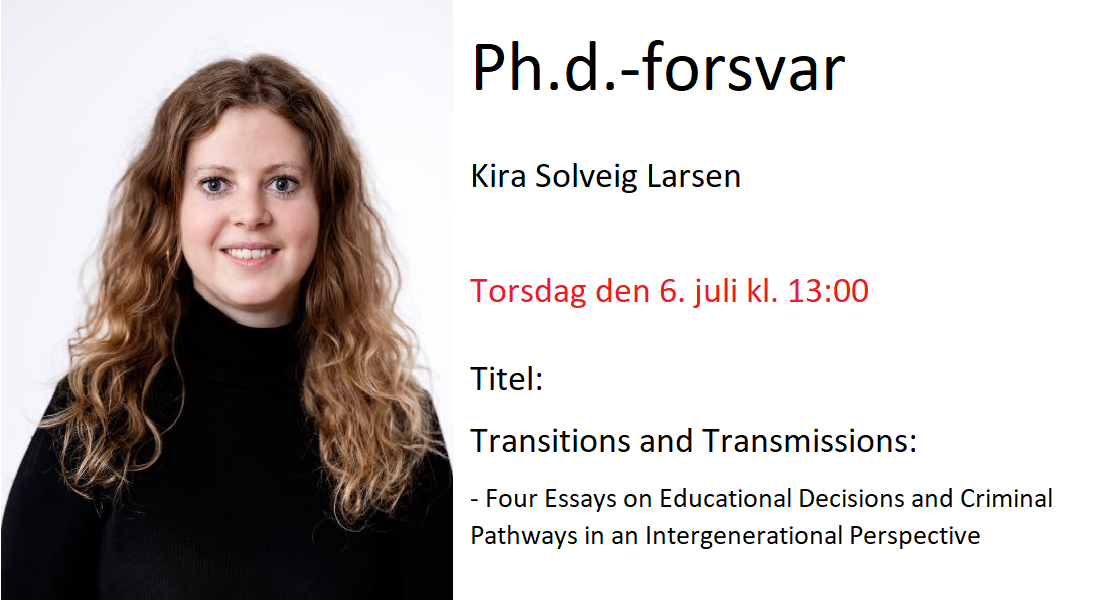Kira Solveig Larsen forsvarer sin ph.d.-afhandling på Sociologisk Institut

Kandidat
Kira Solveig Larsen, Sociologisk Institut, Københavns Universitet
Titel
Transitions and Transmissions: Four Essays on Educational Decisions and Criminal Pathways in an Intergenerational Perspective
Bedømmelseskomite
Associate Professor Kristian Karlson (Chair), University of Copenhagen
Associate Professor Moris Triventi, University of Trento
Professor Kristin Turney, University of California, Irvine
Vært
Merlin Schaeffer, Studieleder, Sociologisk Institut
Tid og sted
6. juli 2023, kl. 13:00
Auditorium 35.01.06 (Bygning 35) - bemærk lokaleændring
Øster Farimagsgade 5,
1353 København K
Københavns Universitet, Det Samfundsvidenskabelige Fakultet,
Ph.d.-afhandlingen vil være tilgængelig gennem Academic Books som e-publikation.
Efter forsvaret er Sociologisk Institut vært ved en reception i lokale 16.1.62 fra kl. cirka 15:30.
Engelsk resume
This dissertation provides empirical evidence on the effect of family background on education and the effect of education on crime. First, the dissertation contributes empirical evidence on how adolescents adapt to life events that may have essential consequences for their educational decisions, achievements, and completion, and consequently for their criminal pathways. Second, it provides new evidence on the effect of family background on adolescents’ adaptions to these life events.
Third, it uses Danish register data and methods that enable plausible causal interpretation of the results. With the empirical evidence in this dissertation, this dissertation aims to contribute to improving sociological and criminological theories of how family background influences educational outcomes, as well as how education might prevent crime. In addition, it intends to
inform policy makers and professionals in the spheres of education and crime on how institutional features might (or might not) play a role in reproducing social inequality in educational opportunities.
Such information may contribute to policy makers’ and professionals’ efforts in shaping an educational system that provides equal opportunities in education, independently of whether adolescents have parents with a high or low education level, high or low social class and criminal justice involvement or not.
